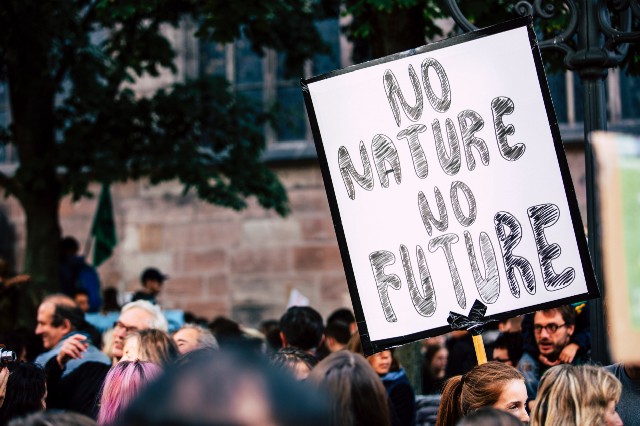
“We meet this year in a moment intermingled with great pain and extraordinary possibility.”
“I stand here today for the first time in 20 years with the United States not at war,” President Joe Biden told world leaders in his first speech to the United Nations General Assembly on September 21.
“We’ve turned the page.”
But the new page to which we’ve turned is equally perilous. The pandemic, civil unrest, and the risk of a new cold war, among other foes we face. But Biden pointed to the climate emergency as top of the list. We’re experiencing a “borderless climate crisis”, the president said, two months in advance of the COP 26 UN Climate Change Conference in Glasgow. He implored all nations involved to “bring their highest possible ambitions to the table, and then to have to keep raising our collective ambition over time.”
Our way of life and likely our very survival is at stake. “Will we meet the threat of challenging climate, the challenging climate we’re all feeling already ravaging every part of our world with extreme weather? Or will we suffer the merciless march of ever-worsening droughts and floods, more intense fires and hurricanes, longer heatwaves and rising seas?” Biden asked.
Just two weeks after he visited the sites in the northeast devastated by Hurricane Ida and first sounded the “code red” alarm, Biden told the assembled at the UN, “The extreme weather events that we have seen in every part of the world — and you all know it and feel it — represent what the Secretary-General has rightly called “code red for humanity.” And the scientists and experts are telling us that we’re fast approaching a “‘point of no return,’ in the literal sense.”
In August, UN Secretary General António Guterres first said that the state of the environmental emergency “is a code red for humanity … The alarm bells are deafening and the evidence is irrefutable,” according to the UN.
The landmark UN study — the agency’s first since 2013 — warns grimly that we’ve harmed our planet at an unprecedented scale — and that the changes we’ve wrought by greenhouse‑gas emissions from fossil-fuel burning and deforestation “are choking our planet and putting billions of people at immediate risk.” Many of these changes might already be irreparable.
In his UN address, Biden cited his ambitious April 2021 goal under the Paris Agreement to reduce greenhouse gas emissions from the US by 50–52 percent below 2005 levels by 2030, “as we work toward achieving a clean-energy economy with net-zero emissions by 2050.”
He also pointed out that his administration is working closely with Congress on critical investments in green infrastructure and electric vehicles. Although, that clean energy agenda remains in jeopardy on Capitol Hill, owing to partisan scrapping.
But the UN scientists who made the report argued only urgent and collective action can help us avert a catastrophe. “The solutions are clear,” the UN said in a press release that accompanied the report. “Inclusive and green economies, prosperity, cleaner air and better health are possible for all if we respond to this crisis with solidarity and courage. All nations, especially the G20 and other major emitters, need to join the net-zero emissions coalition and reinforce their commitments with credible, concrete and enhanced nationally determined contributions and policies.”
Guterres summarized the findings in August, saying: “If We combine forces now, We can avert climate catastrophe. But, as today’s report makes clear, there is no time for delay and no room for excuses. I count on government leaders and all stakeholders to ensure COP26 is a success.” [itals mine]
Biden echoed this call for high-level, cross-sector, international collaboration. “I know this: As we look ahead, We will lead. We will lead on all the greatest challenges of our time — from COVID to climate, peace and security, human dignity and human rights. But We will not go it alone,” he said. [itals mine]
“Ladies and gentlemen, we cannot afford to waste any more time. Let’s get to work. Let’s make our better future now.”
Who’s the “We” in Biden’s plea? Yes, governments must act quickly, decisively, and cooperatively. Consumers must alter their behavior. But much of the burden falls to business. Not only because new regulations will mandate change. And not only because business can’t survive in societies that fail. But because only business has the reach, resources, and responsibility to right decades of wrongheadedness on the environment.
Lead With We companies across the globe — like those with B Corp certification and the new climate-neutral certification, are already likely to be thinking longer-term, acting more responsibly, becoming transparent and accountable, and collaborating in partnerships with other companies — even competitors — to foster a new, more creative mindset focused on addressing the planetary emergency and associated social challenges we all face — not as an afterthought of doing business, but as the very reason for it.
We caused this code red — and only we can dial it down.
To understand how your brand can join the movement to regenerate our planet and your business, visit LeadWithWe.com

